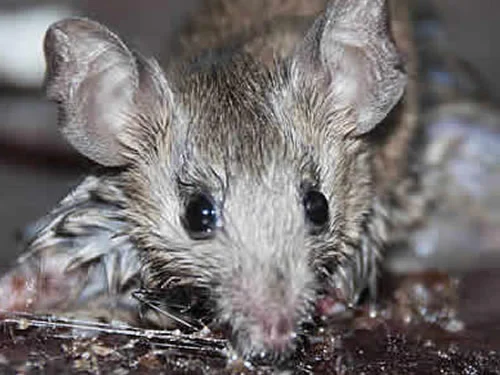
Houston Rodent Control
Rid Your Home of Rats, Raccoons, Squirrels, Mice, and More
If you have rodents in your home, get them out and keep them out with John Moore’s Houston Pest Control Services.
What to Do About Rodents in Your Home?
If you think there might be a rodent infestation in your home, there’s no time to waste. Pick up the phone today and contact the Houston pest control experts at John Moore.
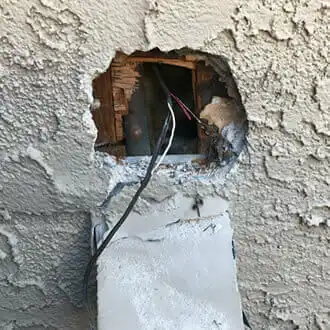
Step 1 - Inspection
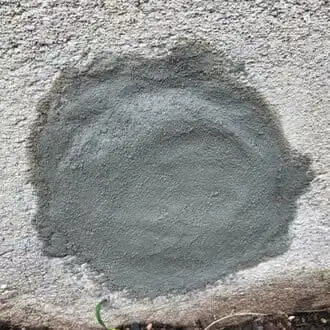
Step 2 - Exclusion
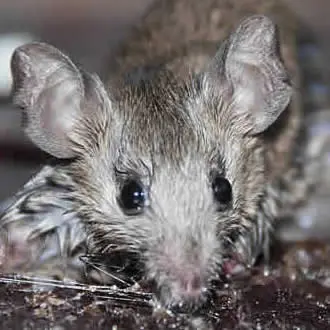
Step 3 - Extermination
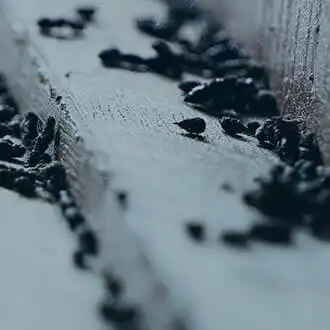
Step 4 - Decontamination
While exclusion and extermination may finally rid you of your rodent problem, there’s still one major rodent control service that must be done to ensure your family is safe: decontamination Rodent urine, droppings, and other nesting materials leave disease in their wake and can potentially get you and your family sick. To eliminate these contaminants and ensure the safety of you and your family, the Houston pest control experts at John Moore recommend our final rodent control service: Disinfectant, Sterilizer, and Virucide (DSV*).
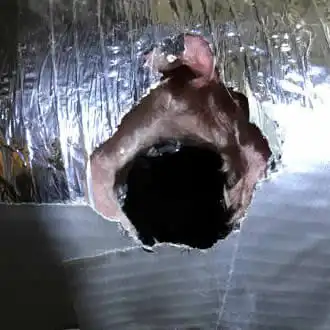
Step 5 - Repair
The Anatomy of a Rodent Infestation
How Rodents Get in Your Home and What They Do When They Get There
How Do I Know What Kind of Rodents are Infesting My Home?
The tell-tale sign of a rodent infestation is the sound of squeaking and scuttling in your attic or in your walls. If you hear these noises, check your attic floor for droppings or urine stains. If the droppings are small, you likely have a rat or mouse infestation. If the droppings are larger, you likely have wildlife creatures such as squirrels, raccoons, or possums.
Larger rodents enter homes through openings along the roof line, eaves, and vents of your home. If you hear squeaking and notice holes in your outside air vents, eave siding, or along your roof line, that’s a surefire sign that rodents have found their way inside.
What Kind of Rats are in Texas?
The Houston, TX area is home to two types of rats: Norway Rats and Roof Rats
- Norway rats, despite what the name suggests, are indigenous to Texas. You’ll often find them digging holes underneath your driveway, on the side of your house, and under your home’s foundation.
- Roof rats originally came to Texas with the first European settlers. They like to climb up tall plants and drainpipes to get into your attic and make it their home.
How Do Rats Get Into My Attic?
Rats and other rodents are incredibly resourceful animals. They can squeeze themselves into some of the tightest holes to make their way inside. Some rodents, such as squirrels, have opposable thumbs that are ideal for grabbing onto weak points and ripping through siding. All rodents have incredibly strong teeth, too. It’s very common to find a hole in your attic that was made by a rat biting straight through flimsy materials.
Once rodents find their way into your home, they quickly begin to wreak havoc. They’ll nest in your attic, your walls, or even underneath your foundation. Rats and mice are so good at hiding that they can remain unseen for months at a time. At night, when everyone has gone to bed, they will help themselves to whatever they can get their claws on and sink their teeth into. They’ll tear apart your roof, sheet-rock, and insulation in search of a safe place to sleep, water to drink, and food to eat. They’ll chew through electrical wires and cut their teeth on your pipes. And worst of all, many carry diseases and spread them wherever they go.
How Do Rats Spread Disease?
While rats, mice, and other rodents are generally scared of humans, they’re intelligent enough to know when we’re around and take steps to avoid being seen. Rats have a keen sense of smell that alerts them to your presence, and so are usually long gone by the time you enter an area where they were scavenging. While you likely won’t catch them in the act of rooting around your things, you will know they were there by what they leave behind. Rats are greasy, oily animals who will leave grease marks and oily stains on your walls, drain pipes, and anywhere else they climb and enter your home. Rats also have no issue answering the call of nature wherever they are. Your pantry, your insulation, your countertops—your whole home is a bathroom for a rat.
When rats relieve themselves, they leave behind all sorts of diseases in their urine and droppings that have the potential to get your family sick. The worst one of all is hantavirus, a highly contagious virus that you get from interacting with rat urine, rat droppings, or rat nesting materials. If you go inside a rat-infested attic and disturb these droppings, or you suffer a water leak in your home that soaks areas that have rat urine or rat feces on them, the hantavirus can be atomized into the air that you breathe and quickly infect you.
Once infected with hantavirus, you will eventually begin to suffer flu-like symptoms: fever, muscle aches, fatigue, difficulty breathing, chills, and more. Unfortunately, there is no cure for hantavirus. Like other types of virus, you just have to ride out the infection and be careful not to infect the rest of your family.
John Moore’s Rodent Control Services

John Moore’s Rodent Quarterly Service
Protect Your Home Year Round

John Moore’s Rodent Exclusion Program
Annual Renewal Inspection

John Moore’s Rodent Wildlife Removal Service
Humane Removal and Exclusion of Raccoons, Possums, Squirrels, and Bats
Since we are not allowed to harm any Texas wildlife aside from mice and rats, our removal process for raccoons, squirrels, possums, and bats differs from the processes we use to rid a home of any other pests. We will exclude the animals from your home by covering any entry points with steel wire mesh, and use DSV to disinfect and sterilize any nesting areas and pathways. However, instead of snap traps and rodenticides, our efforts are focused on humanely trapping the wildlife in baited cages so they can be returned to the wild.
Once the wildlife animals have been caged, we take them a minimum of 10 miles away from your home to release them into one of the Houston area’s many wildlife reserves, such as Bear Creek Park and the Houston Arboretum, where they are less likely to return to any residential homes.
Uninvited Guests?

FREE
Home Rodent InspectionFree Termite Inspection
Save big with a FREE in-home termite inspection from John Moore Pest Control.
John Moore
(877) 730-2525
*Limit one per household. Some restrictions may apply. Cannot combine offers. Expires 12/31/2024.
Click here to see all coupons.
SEND TO PHONEPest Control
Save $20 on your initial treatment.
John Moore
(877) 730-2525
*Limit one per household. Some restrictions may apply. Cannot combine offers. Expires 12/31/2024.
Click here to see all coupons.
SEND TO PHONERodent Exclusion
Save $50 on rodent exclusion services from John Moore Pest Control.
John Moore
(877) 730-2525
*Limit one per household. Some restrictions may apply. Cannot combine offers. Expires 12/31/2024.
Click here to see all coupons.
SEND TO PHONE$100 Off Termite Treatment with Purchase of Annual Recurring Service.
100% Guarantee & 10 Year Warranty on Subterranean Termites. 5 year Warranty for Drywood Termites.
John Moore
(877) 730-2525
*Limit one per household. Some restrictions may apply. Cannot combine offers. Expires 12/31/2024.
Click here to see all coupons.
SEND TO PHONELifetime Warranty on Rodent Exclusion with Purchase of Annual Contract
100% Guarantee if the rodents return, so do we!
John Moore
(877) 730-2525
*Limit one per household. Some restrictions may apply. Cannot combine offers. Expires 12/31/2024.
Click here to see all coupons.
SEND TO PHONEPest Control Service
$50 Off Initial Pest Control Treatment with purchase of annual contract.
John Moore
(877) 730-2525
*Limit one per household. Some restrictions may apply. Cannot combine offers. Expires 12/31/2024.
Click here to see all coupons.
SEND TO PHONEShare this Page
